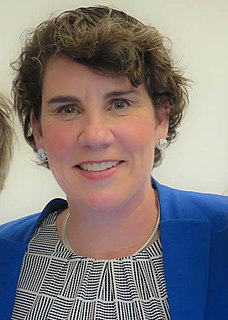A Quote by Lewis Thomas
It is when physicians are bogged down by their incomplete technologies, by the innumerable things they are obliged to do in medicine when they lack a clear understanding of disease mechanisms, that the deficiencies of the health-care system are most conspicuous. If I were a policy-maker, interested in saving money for health care over the long haul, I would regard it as an act of high prudence to give high priority to a lot more basic research in biologic science.
Quote Topics
Act
Basic
Basic Research
Bogged
Care
Clear
Conspicuous
Deficiencies
Disease
Down
Give
Haul
Health
Health Care
High
Incomplete
Interested
Lack
Long
Long Haul
Lot
Maker
Mechanisms
Medicine
Money
More
Most
Obliged
Over
Physicians
Policy
Priority
Prudence
Regard
Research
Saving
Saving Money
Science
System
Technologies
Things
Understanding
Were
Would
Related Quotes
In comparison to the U.S. health care system, the German system is clearly better, because the German health care system works for everyone who needs care, ... costs little money, and it's not a system about which you have to worry all the time. I think that for us the risk is that the private system undermines the solidarity principle. If that is fixed and we concentrate a little bit on better competition and more research, I think the German health care system is a nice third way between a for-profit system on the one hand and, let's say, a single-payer system on the other hand.
I think basic disease care access and basic access to health care is a human right. If we need a constitutional amendment to put it in the Bill of Rights, then that's what we ought to do. Nobody with a conscience would leave the victim of a shark attack to bleed while we figure out whether or not they could pay for care. That tells us that at some level, health care access is a basic human right. Our system should be aligned so that our policies match our morality. Then within that system where everybody has access, we need to incentivize prevention, both for the patient and the provider.
We need to start training more primary health providers and fewer specialists. We will never be able to control health care costs unless we challenge the over-emphasis on medical research, specialists and technology and put more emphasis on delivering good, everyday basic medicine to those who now have none.
One such troubling provision is a tax increase to pay for the $635 billion included in the budget for health care 'reserve funds.' Health care reform is desperately needed in America, but I'm concerned that $635 billion will be a down payment on socialized medicine, causing the impersonal rationing of health care and destroying the doctor-patient relationship.




































